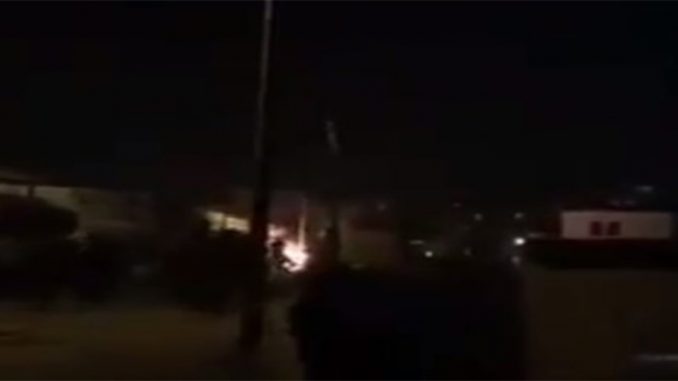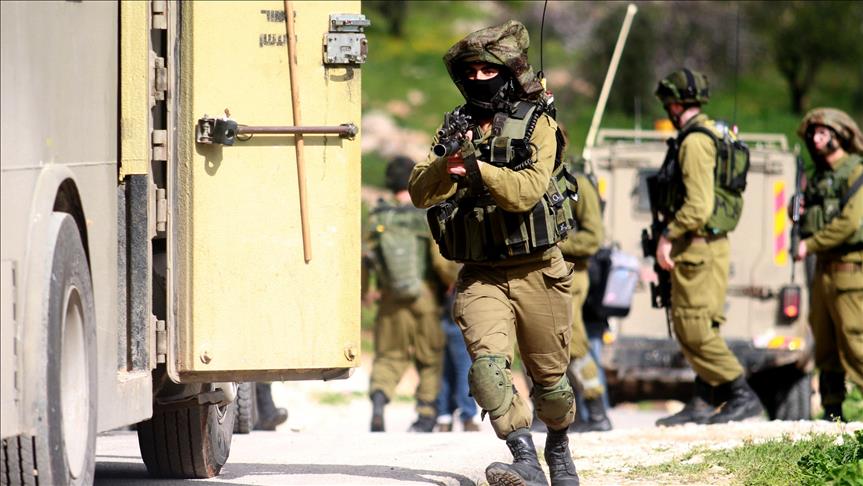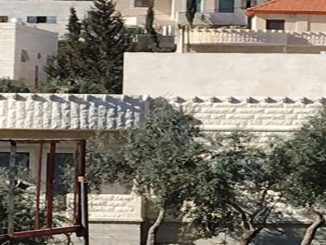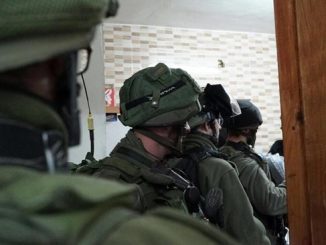
Clashes erupted between Palestinian Authority (PA) security forces and demonstrators at Duheisha refugee camp in the occupied West Bank district of Bethlehem on Sunday evening, as locals reported that police were shooting live fire towards Palestinian youths.
Scores of Palestinians marched from Duheisha on Sunday afternoon to protest a legal case against slain activist Basel al-Araj and five other Palestinians who were imprisoned alongside him last year by the PA, as well as to denounce police repression against a similar protest in Ramallah earlier in the day.
The march headed to a Palestinian police station in the nearby village of Artas, where clashes then erupted.
Local news sources and Duheisha residents reported that Palestinian police officers forces were using live bullets, tear gas, and sound bombs against the demonstrators, as youths threw rocks and Molotov cocktails at police forces.
Local news page al-Duheisha al-Hadath said that Palestinian forces had raided at least one home in Duheisha in the clashes.
Al-Duheisha al-Hadath also reported that ambulances treated protesters for excessive tear gas inhalation. A spokesperson for the Palestinian Red Crescent could not be reached for comment.
A hunger strike launched by the six ultimately led to their release six months later in September, without any charges being brought against them. However, Harb, Siyaj, al-Salamin, and al-Idrissi were detained by Israeli forces immediately after being freed, eliciting outrage among Palestinians over the PA’s policy of security coordination with Israel.
Al-Araj remained in hiding, and after several months on the run, Israeli forces ambushed him last week in a home near Ramallah and shot him dead, in what was branded as an “execution” and an “assassination” of the 31-year-old, who was beloved in Palestinian activist circles as a freedom fighter, an intellectual, and a theorist.
Al-Araj’s killing has evoked a strong emotional response among activist youth, who took to the streets on Sunday after the Ramallah district court announced that al-Araj’s fellow prisoners in the case would still be tried in court for allegedly possessing weapons and planning an attack on Israel, despite the fact that four of the men remained held in Israeli custody.
Palestinian news outlet al-Quds Network reported that lawyer Muhannad Karaja had previously requested that the Ramallah magistrate court drop the charges against Harb, Siyaj, al-Salamin, and al-Idrissi, and that the judge had requested that the lawyer present documentation that proved that the four were actually being detained by Israel.
When Karaja presented a certificate as proof to the judge during Sunday’s court session, the judge disregarded it, and insisted on postponing the trial until April 30, reportedly saying that “the four might be out of Israeli prisons” by that date, according to al-Quds.
Karaja said that the judge dropped charges against al-Araj only after his death certificate was presented in court.
The court decisions and the police repression of Sunday’s protests were denounced by demonstrators, including al-Araj’s father Mahmoud al-Araj, who was assaulted by officers in Ramallah.
“Everyone who gave orders to assault demonstrators must held accountable for their actions,” Mahmoud al-Araj said.
PA security forces spokesman Adnan al-Dmeiri, meanwhile, accused “mercenaries” and “foreign agents” of sparking clashes to cause internal Palestinian strife, and called the protests “cheap incitement,” echoing lingo used by Israeli security forces against Palestinians opposition the occupation.



